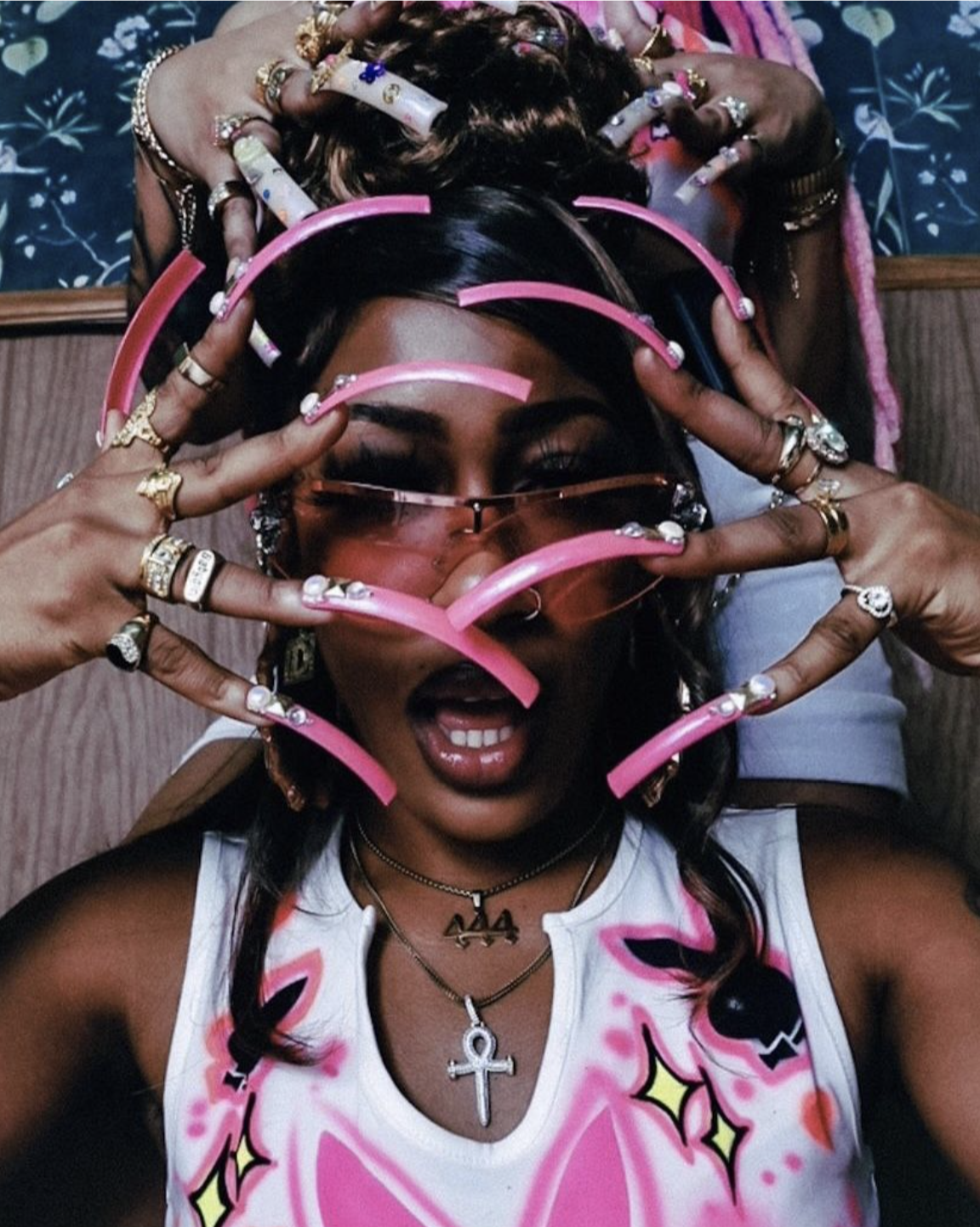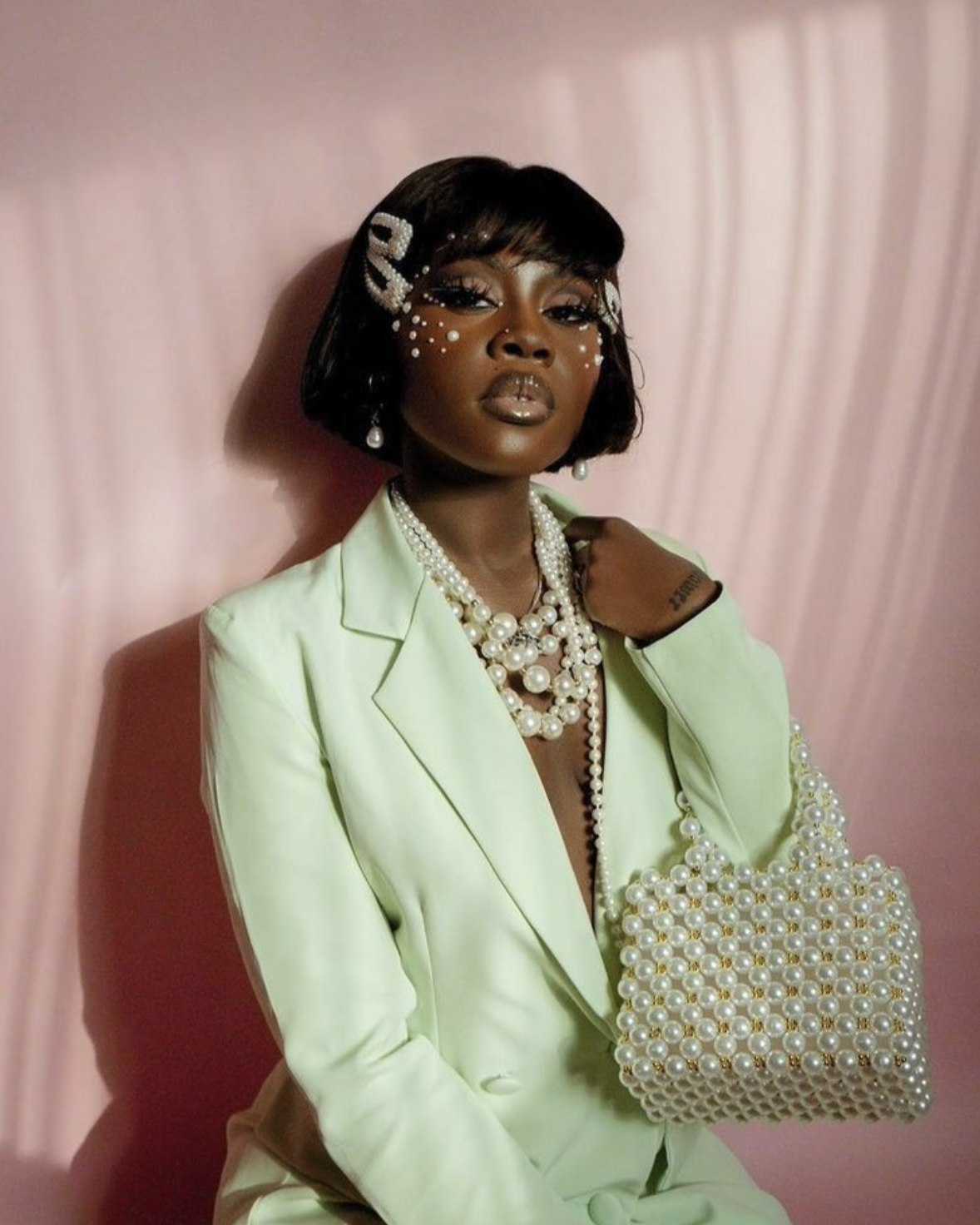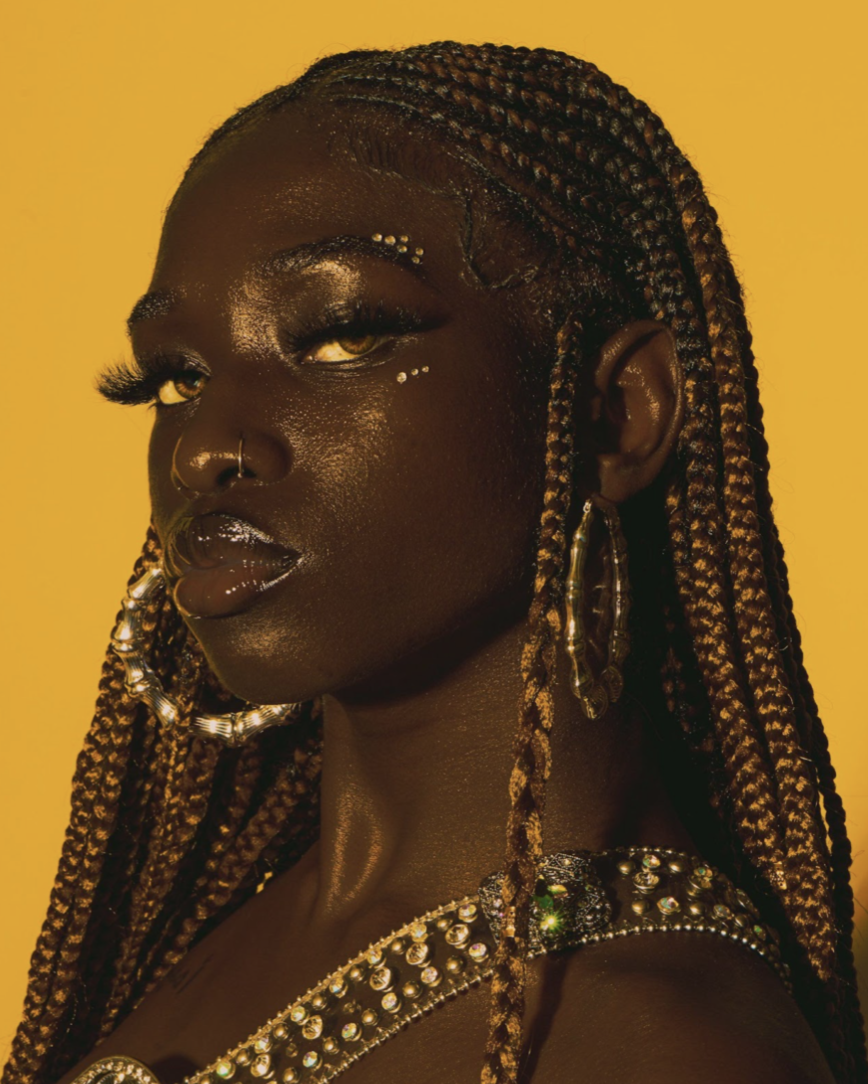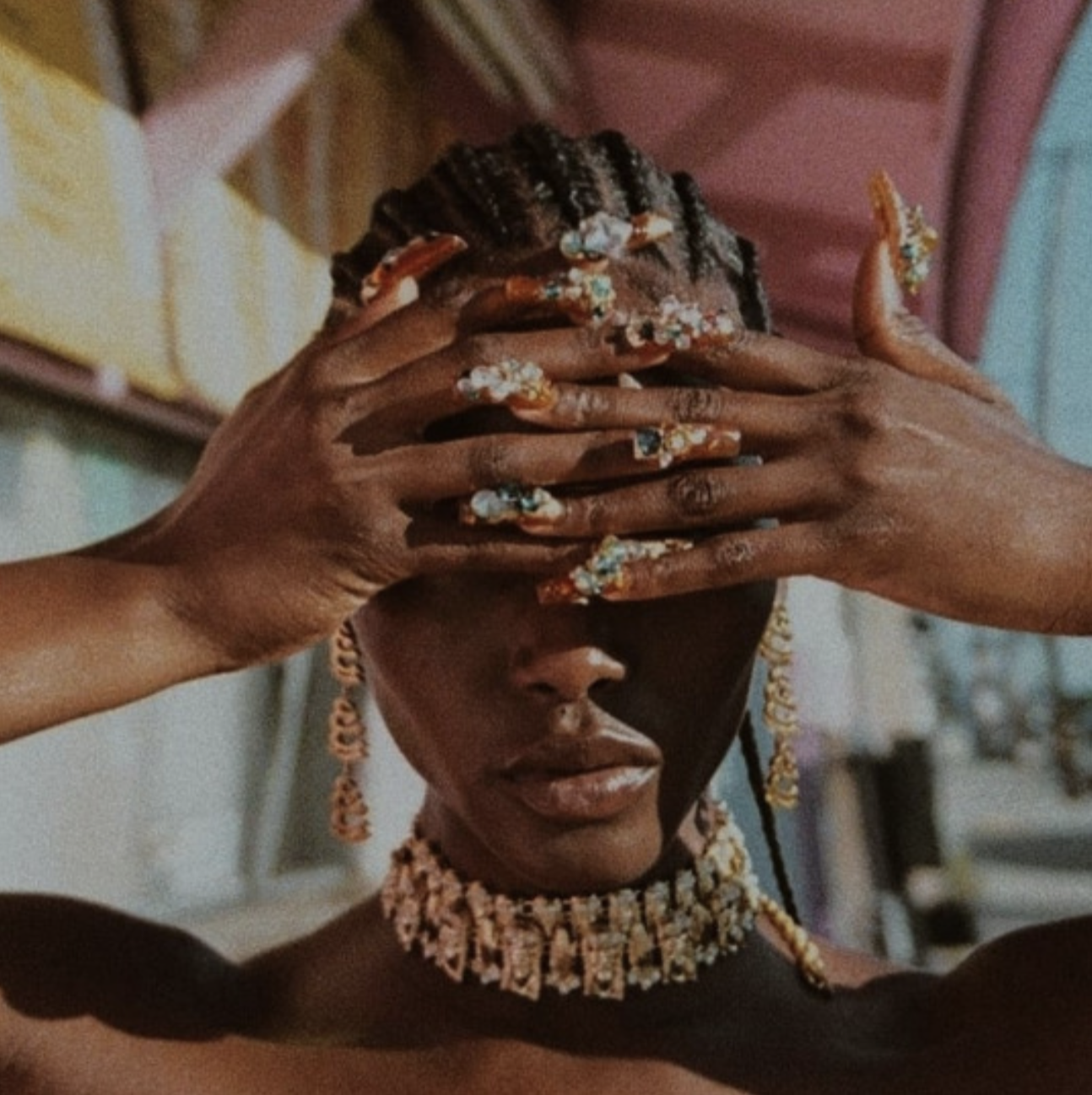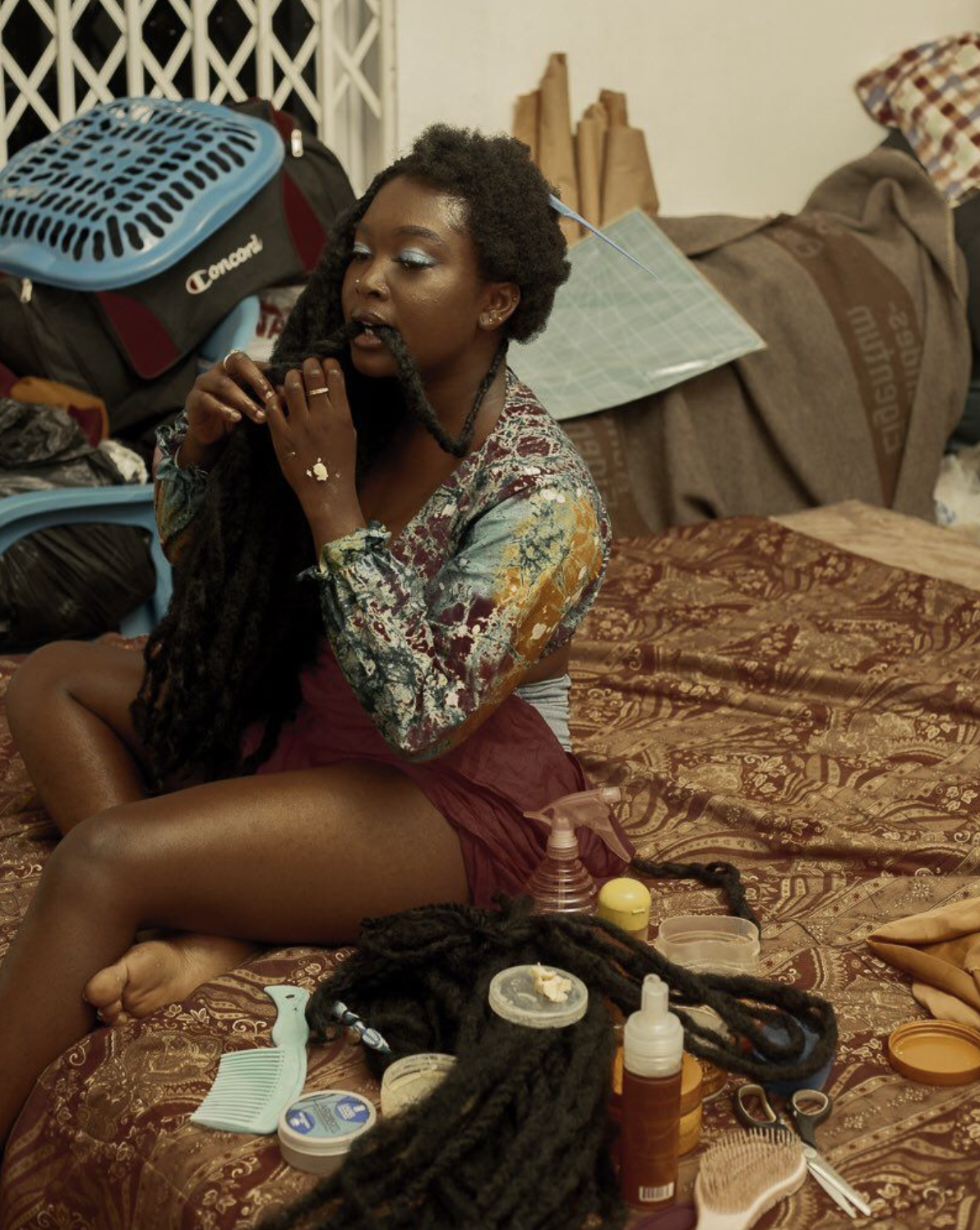A BLACK GIRL’S GUIDE TO SURVIVING AT A PWI
Graphic by Agnes Lee
Black women are the strongest people on this planet. There are very few places where we are accepted and celebrated as we are. In outside communities, we are viewed only as our stereotypes: loud, obnoxious, rude, aggressive and ghetto. Colorism splits us within our own community, pitting light-skinned women against dark-skinned women. These issues increase ten-fold at Predominately White Institutions (PWI) like universities.
Being a Black woman in academia is an experience unlike any other. While battling school-related stressors, we face racial discimination, standardized by the ignorance of our predominantly white peers. This comes in the form of microaggressions (“Where are you really from?”, “I don’t see color”, “Can I touch your hair?”), sexualization by white men (“I’ve never been with a Black girl before”, “You’re so exotic”) or just outright racism. Academic society drills into our heads that we can never be successful because of what we look like. When we are successful, we’re told that it’s because of luck and not because we work harder than anyone else. This constant battle between us and the rest of the world creeps into our own minds. We have to constantly fight against our own feelings of inferiority and the urge to seek white validation to affirm that we belong in the spaces we occupy. The mental toll this effort takes is viscerally exhausting.
Dear White People, a show about a group of Black students that go to a PWI, depicts this internal dichotomy in a very real way. The show’s fashion is phenomenal. It explores the characters’ desire for institutional affirmation, and in doing so, it motivated me to write this piece. I was particularly influenced by one character’s style: Coco.
Coco is from the Southside of Chicago, and she chooses to use her clothes to distance herself from the stereotyped perception people have of the neighborhood. She straightens her hair and wears blazers and blouses to school in order to appear professional and academic. She puts in a conscious effort to combat the fact that when most of her peers and professors picture an academic, they very rarely picture a Black person.
While seeking pictures for this article, I looked up “Black academia” on Google Images. The results returned images of the dark academia aesthetic, an aesthetic characterized by gothic architecture, low exposure photos, and preppy fashion, without a single Black person. When I changed my search to “African-American academia”, I got pictures of Black academics, but instead of displaying Black people in a dark academia aesthetic, I got stock image-like photos of Black people graduating. I then searched “academia” and the results were not surprising: dark academia pictures of white people. My design-mission turned mini-experiment conveys how the standard of Black prosperity in academics is tantamount to the bare minimum for whiteness.
In some ways, this is mostly a product of major search engines like Google. When I looked up ‘Black academia’ on Pinterest, I got exactly what I was looking for: images of Black people with the dark academia aesthetic. Google’s contribution to microaggressions through generalized image algorithms highlights the constant reminder that Black academics receive every day at PWI’s: we don’t belong. Non-Black people will never understand this feeling. Most people on Northwestern’s Evanston campus deal with imposter syndrome about their grades because they believe they are incapable of keeping up with the university’s academic rigor. Racial and ethnic minorities on campus have to deal with an additional source of impostor syndrome surrounding the color of our skin.
Very few individuals or student groups discuss this struggle or highlight its severity, with the exception of specific minority spaces. So, students of color have to find our own ways to cope through our self presentation. I choose to be like Coco, not in the sense that I wear clothes that will help me combat stereotypes, but in the sense that fashion helps me feel like I belong in spaces that were not created for me. I always make an effort to look my best. You will never catch me lacking, even on an off day. My sweatpants are still runway worthy. I’m more confident when I wear outfits that show other academics that you can appreciate clothes and still be an academic. I have no desire to conform to the strange and dull preconception that academics rotate through the same dreary, colorless clothes every single day because students are too focused on studying to care about what they put on.
Fashion is fun and incredibly freeing, and it helps me to be confident in my identity as an African immigrant raised in a low-income family who worked harder than most people at Northwestern to get here. According to a 2017 New York Times report, 66% of Northwestern’s students come from the top 20% and the median family income is $171,200. I have nowhere near the same resources as these students. I am here through pure blood, sweat, and tears, treading the waters of an unfamiliar college system with only moral support from my family who did not go to school here and knew nothing about American colleges. Everything I learned, struggled for, and achieved, I did of my own volition. And yet, people still have the audacity to tell me my efforts are meaningless. I make my mark on this campus every time I parade my Nike Air Force 1 Shadows across Sheridan, and my gold jewelry catches and reflects drops of sunlight. I make my presence known every time someone stares at me on my walk to Tech when I wear something I took 30 minutes putting together the night before. I am eternal in these moments. And it’s in these moments that I can escape the struggles of being a Black woman at a PWI and prove all the people wrong who thought I couldn’t make it here.
The same is true for every other Black person who has similar experiences. When you look at Historically Black Colleges and Universities (HBCU’s), their students, without fail, look their very best every day. “Missing” is not a word in their collective vocabulary. The culture of holding yourself to a high standard, regardless of the environment but also because of that very environment, translates to every part of Black culture. Our relationship with fashion is an extension of our fight against being told we do not belong. We prove we exist when we stand out, and we prove we belong when we stand out and excel. Even if people say our efforts are meaningless, Black women always effortlessly come out on top and look incredible doing it.


